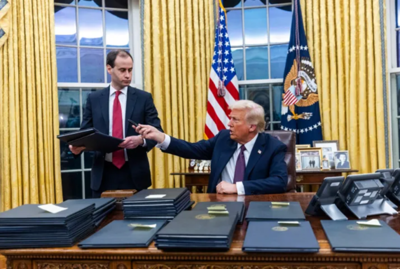The US has formally announced its withdrawal from the World Health Organization (WHO), citing the organization’s handling of the COVID-19 pandemic, perceived political influences, and financial disparities among member nations.
The decision, outlined in an executive order signed on January 20, 2025, marks a significant policy shift, reversing the prior administration’s decision to rejoin the global health body. According to the executive order, the withdrawal is motivated by the WHO’s failure to adopt critical reforms, mishandling of global health crises, and reliance on funding disproportionately provided by the US.
“The WHO has demonstrated an inability to act independently from the political influence of its member states,” the order states, highlighting disparities in financial contributions. For instance, despite having a population of 1.4 billion, China contributes nearly 90% less to the WHO than the US.
Key provisions of the executive order include:
- Halting US Contributions: The US will cease future funding and support to the WHO and reallocate these resources to “credible and transparent” domestic and international health initiatives.
- Personnel Reassignment: US personnel currently involved in WHO activities will be recalled or reassigned.
- Pandemic Response Leadership: A new US-led framework for public health and biosecurity will be established under the National Security Council.
- Review of Global Health Strategy: The 2024 US Global Health Security Strategy will be replaced with a revised policy.
The order also instructs the Secretary of State to notify the United Nations and the WHO of the withdrawal and halt participation in negotiations related to the WHO’s Pandemic Agreement and amendments to International Health Regulations.
This move follows years of tension between the US and the WHO, with critics arguing that the organization mishandled early warnings about COVID-19, failed to hold member nations accountable, and allowed political pressures to undermine its credibility.
The withdrawal has sparked debate among health experts and policymakers. Supporters argue the decision reclaims US sovereignty over global health initiatives and addresses financial inequities. Opponents warn it could undermine global efforts to combat pandemics and weaken US influence in international health governance.
The withdrawal process is expected to take effect in accordance with international protocols, with the administration emphasizing its commitment to safeguarding global health through alternative partnerships.




